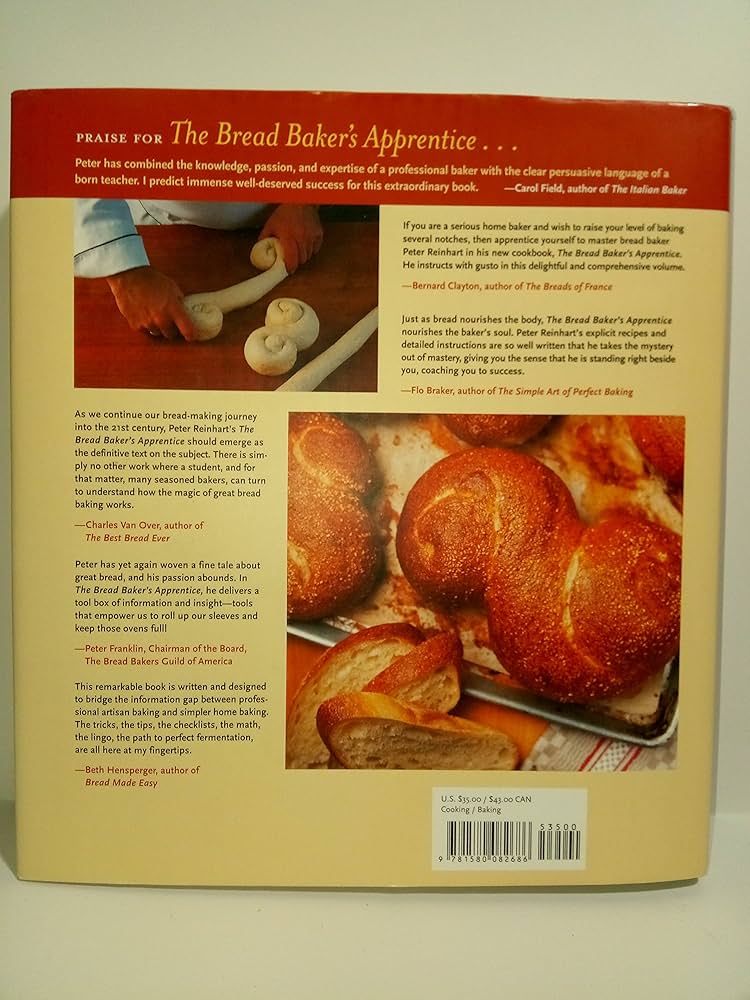On this website, some posts contain affiliate links, which means that if you buy a product using my link, I may earn a commission.
Kitchen tips for beginners: Start with basic utensils and ingredients, and practice cooking simple recipes to build confidence and skills.
Essential Equipment For A Well-stocked Kitchen
Maintaining a well-stocked kitchen is crucial for beginners and experienced home cooks alike. Having the right kitchen utensils can make all the difference in creating delicious meals. Some must-have utensils for beginners include:
- Pots and pans: Invest in a variety of sizes and types, such as a saucepan, skillet, and stockpot. These versatile tools will allow you to cook a wide range of dishes.
- Quality knives: A set of sharp knives is essential for food preparation. Look for a chef’s knife, paring knife, and serrated knife to cover all your cutting needs.
Besides utensils, it’s important to consider the quality of your kitchen equipment. Opting for durable and long-lasting materials, such as stainless steel or cast iron, will ensure they stand the test of time. By providing yourself with the right tools, you’ll be well-equipped to embark on your culinary journey.
Basic Cooking Techniques Every Beginner Should Know
Discover essential kitchen tips for beginners that will help develop basic cooking techniques. Master the art of preparing meals with these easy-to-follow guidelines.


Understanding And Implementing Proper Knife Skills
Having proper knife skills is crucial for any beginner cook. Using the correct knife and knowing how to hold it properly can make all the difference when it comes to slicing, dicing, and chopping ingredients. Make sure to keep your knives sharp to ensure clean cuts and minimize the risk of accidents. Remember to use a cutting board to protect your countertop and to provide stability while cutting.
Mastering Essential Cooking Methods
In addition to knife skills, mastering basic cooking methods like sautéing, boiling, and roasting is essential for beginners. Sautéing involves quickly cooking food in a little bit of oil over high heat, while boiling is the process of cooking in boiling water. Roasting, on the other hand, is a slow cooking method using dry heat in the oven. Understanding these techniques will help you cook a variety of dishes with ease.
Exploring Different Ways To Season And Flavor Dishes
To elevate your dishes, it is important to experiment with various seasonings and flavors. Herbs and spices are great options to add depth and complexity to your meals. Don’t be afraid to experiment with different combinations to find your preferred tastes. Moreover, marinating food can enhance its taste and tenderness. Acidic ingredients like citrus juice or vinegar can also add a bright and refreshing element to your dishes. Remember to taste as you go and adjust accordingly to achieve the desired flavor.
Time-saving Hacks To Streamline Your Cooking Process
Efficient meal planning and prepping strategies can work wonders when it comes to saving time in the kitchen. Plan your meals for the week ahead, making a detailed grocery list to ensure you have all the necessary ingredients on hand. Consider batch cooking and storing leftovers in airtight containers for quick and easy meals during busy weekdays. Make-ahead recipes are a lifesaver for those with busy schedules. Spend a few hours on the weekend preparing meals that can be frozen and reheated later in the week. Slow cookers and pressure cookers are your best friends when it comes to easy one-pot meals. Utilize these appliances to cook nourishing soups, stews, or tender meats with minimal effort. By having a well-planned kitchen routine and utilizing time-saving appliances, you can streamline your cooking process and enjoy delicious meals without spending hours in the kitchen.
Clever Tips For Preventing Common Kitchen Mishaps
Preventing common kitchen mishaps is essential for beginners. To avoid overcooking or undercooking food, it’s crucial to set a timer and monitor cooking times. Additionally, you can use a food thermometer to ensure the correct internal temperature. To prevent food from sticking to pans and pots, grease the cooking surface adequately or use non-stick cookware. Another helpful tip is to preheat the pan before adding food. In case you accidentally oversalt or over-spice a dish, a quick fix is to add a bit of sugar or vinegar, depending on the flavor profile you desire. This can help balance the intense flavors. Remember, it’s important to taste as you go to catch any seasoning mistakes early and make necessary adjustments. By following these clever tips, beginners can avoid common kitchen mishaps and enjoy successful cooking experiences.
Secrets To Elevating Your Dishes To The Next Level
Want to take your cooking skills to the next level? Follow these kitchen tips to elevate your dishes. First, utilize herbs and spices to enhance flavors. Don’t be afraid to experiment with different combinations and quantities to find what works best for your taste. Second, incorporate different cooking techniques to add texture and enhance presentation. Try grilling, roasting, or sautéing to bring out different flavors and textures in your dishes. Lastly, experiment with flavors and ingredients to create your own signature dishes. Don’t be afraid to think outside the box and try new ingredients or flavor profiles to add a unique touch to your meals. Remember, the key to becoming a great cook is practice and experimentation, so don’t be afraid to get creative in the kitchen!
Creative Ways To Minimize Food Waste In The Kitchen
Creative Ways to Minimize Food Waste in the Kitchen
| Smart storage solutions for extending the shelf life of ingredients | Repurposing leftovers into delicious new meals |
|---|---|
| 1. Invest in airtight containers to keep ingredients fresh for longer periods. | 1. Turn previous night’s leftovers into mouthwatering wraps or sandwiches. |
| 2. Use produce bags to preserve the freshness of fruits and vegetables. | 2. Transform cooked vegetables into tasty frittatas or quiches. |
| 3. Freeze excess ingredients like herbs in ice cube trays with olive oil. | 3. Blend overripe fruits into smoothies or use them for baking. |
| 4. Label and date items in the fridge to prevent them from being forgotten. | 4. Create flavorful soups by utilizing vegetable trimmings. |
By implementing these tips, you can maximize the use of ingredients and reduce food waste, while still enjoying delicious meals. Embrace creativity in the kitchen, and you’ll be surprised by the innovative and sustainable meals you can create.
Troubleshooting Tips For Common Kitchen Problems
Having trouble with your kitchen creations? Don’t worry, we have some troubleshooting tips that can help you out. If you’ve ever made a curdled sauce or a broken emulsion, don’t throw it away just yet. Rescue it by gradually whisking in some ice water or a few tablespoons of cream. For baking mishaps, like sunken cakes or burnt cookies, don’t despair. Simply level the cake and fill the sunken part with frosting or fruit, and for burnt cookies, gently scrape off the darkened parts with a knife. Missing ingredients can be a major setback, but don’t panic. You can use alternatives like applesauce instead of oil, Greek yogurt instead of sour cream, or baking powder with vinegar as a substitute for yeast. With these tips, you’ll be able to overcome common kitchen problems with ease.
Essential Tips For Maintaining A Clean And Organized Kitchen
Essential Tips for Maintaining a Clean and Organized Kitchen
Maintaining a clean and organized kitchen is essential for efficient meal preparation and a pleasant cooking experience. Establishing a cleaning routine is the first step towards keeping your kitchen tidy. Set aside specific days or times for deep cleaning tasks such as scrubbing the oven or defrosting the freezer. Organizing food storage is crucial to minimize waste and maintain freshness. Label containers with expiration dates and store similar items together. Arrange your pantry and refrigerator in a way that allows easy access to frequently used items. Regularly discard expired or stale products.
Properly cleaning and maintaining your kitchen tools and appliances is equally important. Regularly clean cutting boards, knives, and utensils to prevent cross-contamination. Follow manufacturer’s instructions for cleaning appliances like coffee makers, blenders, and toasters. A well-maintained kitchen will not only make cooking more enjoyable but also extend the lifespan of your tools and appliances.
Exploring The World Of Online Cooking Resources
When it comes to learning how to cook, the Internet is a treasure trove of resources for beginners. If you’re looking to explore the world of online cooking, there are several recommended websites and blogs that can help you get started on your culinary journey. These online platforms offer a wealth of recipes, cooking tips, and tutorials specifically designed for beginners. Additionally, there are numerous YouTube channels and cooking shows that provide step-by-step guidance to improve your skills in the kitchen. Whether you’re seeking advice, sharing recipes, or looking to connect with other cooking enthusiasts, online communities and forums offer a great platform to engage with like-minded individuals. With the help of these online resources, you can quickly gain confidence and develop your culinary skills from the comfort of your own kitchen.


Credit: www.amazon.com
Final Thoughts On Mastering The Art Of Cooking As A Beginner
Embracing mistakes as learning opportunities is crucial when it comes to building confidence in the kitchen. As a beginner, it’s important to remember that even seasoned chefs make errors from time to time. Use these mishaps as chances to experiment and improve your skills. Don’t be afraid to try new recipes and techniques; this is one of the best ways to expand your culinary knowledge. Whether it’s tackling a complicated French dish or experimenting with different spices in your stir-fry, pushing yourself out of your comfort zone will lead to growth and development as a cook. Moreover, continue to learn and seek out new information about cooking. Attend workshops, read cookbooks, and watch online tutorials to broaden your understanding. With time, dedication, and continuous learning, you’ll soon become a skilled culinary artist.
Frequently Asked Questions On Kitchen Tips For Beginners
What Are Essential Kitchen Tools For Beginners?
For beginners, essential kitchen tools include a chef’s knife, cutting board, measuring cups and spoons, mixing bowls, and a set of pots and pans. Other helpful tools include a blender, food processor, and a can opener.
How Can I Organize My Kitchen For Better Efficiency?
To organize your kitchen, start by decluttering and getting rid of any unused or unnecessary items. Use storage solutions such as drawer dividers, shelf organizers, and labeled containers. Keep frequently used items within easy reach and group similar items together.
What Are Some Basic Cooking Techniques To Learn?
Some basic cooking techniques to learn as a beginner include sautéing, baking, grilling, boiling, and roasting. These techniques will help you cook a variety of dishes and unlock endless culinary possibilities. Start with simple recipes and gradually expand your skills.
How Do I Know If Ingredients Are Fresh And Safe To Use?
To determine if ingredients are fresh and safe to use, check for signs of spoilage such as mold, unpleasant odor, or unusual color or texture. Additionally, pay attention to expiration dates and store perishable items properly to maintain their freshness.
When in doubt, it’s better to discard questionable ingredients.
Conclusion
Mastering the art of cooking may seem daunting for beginners, but with these essential kitchen tips, you’ll be well on your way to culinary success. From organizing your pantry to mastering basic knife skills, this blog post has provided you with the fundamental knowledge needed to feel confident in the kitchen.
So, don your apron, grab those pots and pans, and start creating delicious meals that will impress friends and family. Happy cooking!
On this website, some posts contain affiliate links, which means that if you buy a product using my link, I may earn a commission.

